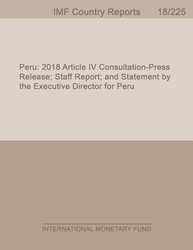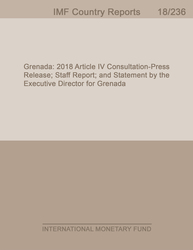
United Republic of Tanzania:Request for Debt Relief under the Catastrophe Containment and Relief Trust-Press Release; Staff Report; and Statement by the Executive Director for the United Republic of Tanzania
Request for Debt Relief under the Catastrophe Containment and Relief Trust-Press Release; Staff Report; and Statement by the Executive Director for the United Republic of Tanzania
READ MORE...
Volume/Issue:
Volume 2020
Issue 203
Publication date: June 2020
ISBN: 9781513547442
$18.00
Add to Cart by clicking price of the language and format you'd like to purchase
Available Languages and Formats
| English |
Prices in red indicate formats that are not yet available but are forthcoming.
Topics covered in this book
This title contains information about the following subjects.
Click on a subject if you would like to see other titles with the same subjects.
Exports and Imports , ISCR , CR , IMF debt service relief , IMF lending tracker , fund support , Tanzania's debt service , emergency financing facilities , IMF's debt service relief , Debt relief , Debt service , COVID-19 , Imports
Also of interest
Summary
This paper discusses the United Republic of Tanzania’s Request for Debt Relief Under the Catastrophe Containment and Relief Trust. IMF debt service relief will help free up resources for public sector health needs and other emergency spending, as well as mitigate the balance of payments shock resulting from the pandemic. Given the risks ahead, it would be important to ensure close cooperation with multilateral organizations and donors and ensure enough budget allocations on health and other priority spending. The authorities are committed to using the additional resources for their intended purposes and in a transparent manner, including through ex-post audits of corona virus-related spending. To deal with the remaining risks, it will be important to safeguard appropriate funding for health and other priority social spending in the FY2020/21 budget, as well as ensure close cooperation with the World Health Organization, multilateral agencies, and donors. The focus includes addressing arrears on value-added tax refunds and government expenditures, enhancing human capital and the business environment, and improving the affordability of bank credit.
Copyright © 2010 - 2026
Powered by:
AIDC



